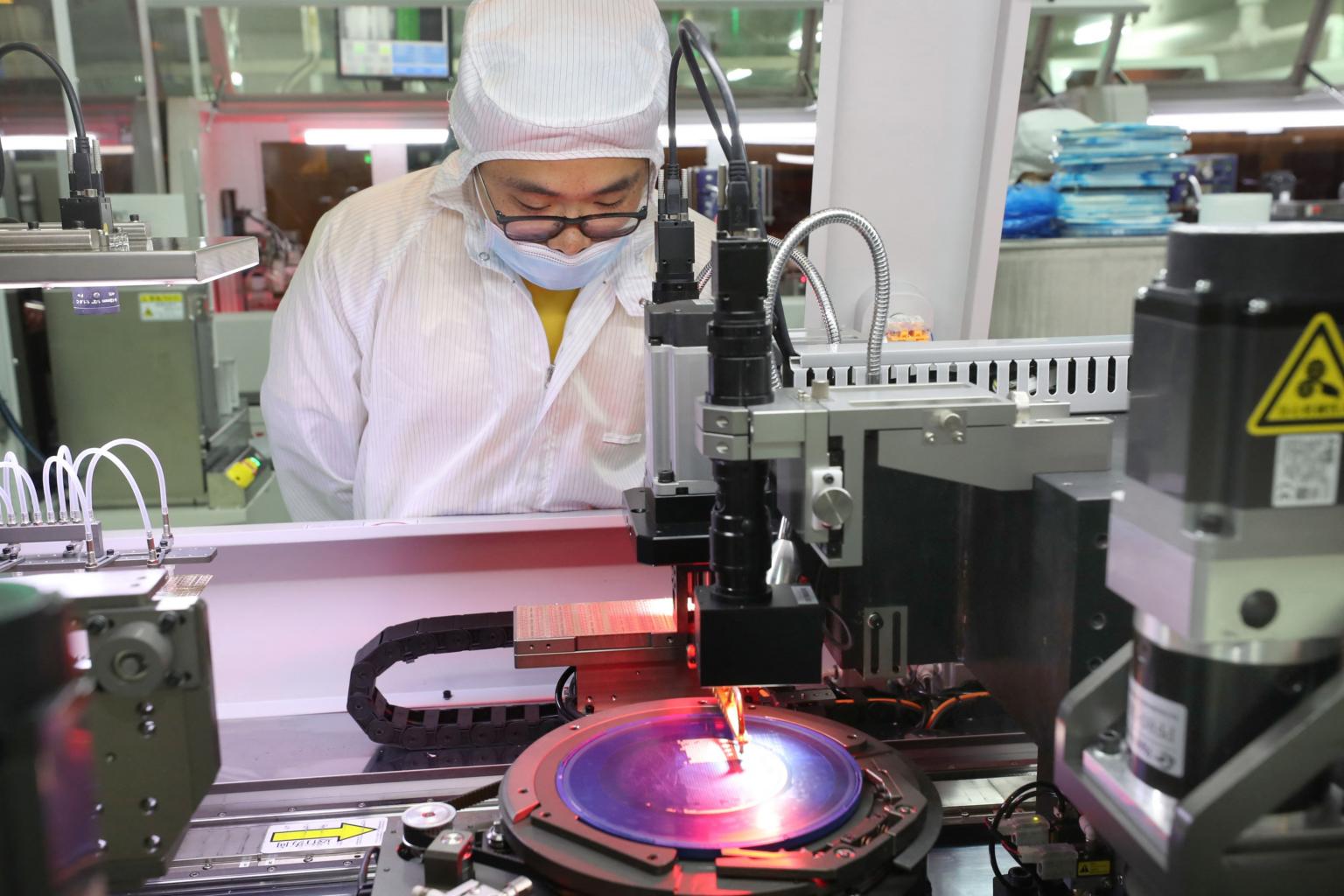Global chip shortage hits Apple, Samsung and Ford as crisis worsens
Sign up now: Get ST's newsletters delivered to your inbox

An employee makes chips at a factory in Jiangsu, China, on March 17, 2021.
PHOTO: AFP
Follow topic:
NEW YORK (BLOOMBERG) - The global chip shortage is going from bad to worse with automakers on three continents joining tech giants Apple and Samsung Electronics in flagging production cuts and lost revenue from the crisis.
In quick succession, Honda Motor said it will halt production at three plants in Japan for around five to six days next month; BMW flagged it will pause Mini car production at its Oxford, England, factory for three days; and Ford Motor reduced its full-year earnings forecast due to the debilitating chip shortage, which it now sees extending into next year.
And now, the very companies that benefitted from surging demand for phones, laptops and electronics during the pandemic that caused the chip shortage, are starting to feel the pinch. After a blockbuster second quarter, Apple chief financial officer Luca Maestri warned on Wednesday (April 28) that supply constraints are crimping sales of iPads and Macs, two products that performed especially well during lockdowns. Mr Maestri said this will knock US$3 billion to US$4 billion off revenue during the fiscal third quarter.
Samsung, which is both a producer and user of chips, said on Thursday that revenue and profit at its mobile division, which produces its marquee Galaxy smartphones, will slide this quarter because of component shortages and weak demand for flagship models.
The shortfall of critically needed semiconductors has forced the entire auto industry to cut output, leaving thin inventories at dealerships just as consumers emerge from Covid-19 lockdowns. In just the past week, Jaguar Land Rover Automotive, Volvo Group and Mitsubishi Motors have joined the list of carmakers idling factories. Consultant AlixPartners has said the chip shortage could cost automakers US$61 billion (S$80.8 billion) in lost sales this year.
Beyond Apple, deepening chip shortages threaten to dampen a nascent rebound in the entire smartphone market. Worldwide shipments surged an estimated 27 per cent to 347 million devices in the first quarter - aided by a plethora of new models and China's swift post-pandemic recovery - but a shortage of components such as app processors could sap that momentum over the rest of 2021.
"Covid-19 is still a major consideration, but it is no longer the main bottleneck," Canalys Research Manager Ben Stanton wrote Thursday. "Supply of critical components, such as chipsets, has quickly become a major concern, and will hinder smartphone shipments in the coming quarters."
At Ford, the shortage will likely reduce production by 1.1 million vehicles this year, John Lawler, the company's chief financial officer, said on a call with reporters.
Tesla chief executive officer Elon Musk this week called the chip shortage a "huge problem." NXP Semiconductors NV said it's expecting supply to be tight all year and warned constraints for the auto industry could extend into 2022.

